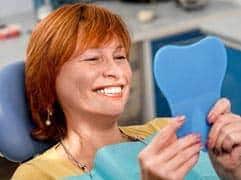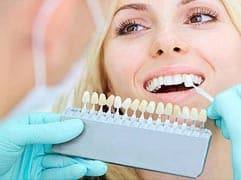What is Halitosis?
Halitosis, also known as chronic bad breath, is a condition which cannot be improved through the use of mints, mouthwash or a good brushing. Unlike the “morning breath” which many people experience or a strong odor after consuming a tuna sandwich, halitosis is continuous and may be a sign of a more serious concern.
Causes of Halitosis
If simple, at-home bad breath remedies are only temporarily covering up the issue, something else may be happening within your body. Some of the common causes of halitosis include the following:
- Dental Issues: Cavities and deep pockets which are created as a result of gum disease, can offer a collection site for bad breath-causing bacteria. These locations can also be challenging to clean when you are brushing or flossing your teeth. Cavities and deep pockets can both contribute to halitosis.
- Infections: Based on information from the Mayo Clinic, sinus, nose and throat issues can lead to a postnasal drip which can contribute to bad breath. Bacteria feeds on the mucus which your body produces when it is battling infections.
- Dry Mouth: Saliva is a critical component of good oral health and aids in preventing bad breath. Saliva rinses and removes unwanted leftovers from the mouth, helps to break down food particles when you eat and provides disease-fighting substances which aid in preventing cavities and infections. Patients who do not produce enough saliva, may suffer from halitosis. Medications, some medical conditions, alcohol, tobacco or excessive caffeine consumption can all cause dry mouth.
- Tobacco Use: Tobacco products are harmful to both your body and your breath. Tobacco products leave a foul odor on your breath, but can also dry out your mouth. Smokers are also more likely to develop gum disease, which can also be a cause for halitosis.
- Other chronic conditions: While halitosis is most often linked to something happening in your mouth, it may also be a sign of other health issues such as diabetes, gastric reflux, liver or kidney disease.
If you notice you have bad breath, be sure to start with simple steps at home which include a healthy dental routine of brushing twice a day and flossing. Other solutions, such as drinking water, chewing sugar-free gum and reducing the amount of caffeine consumed, may also aid in improving the smell of your breath.
If you notice you continue to have bad breath, make an appointment with your dentist. Your dentist can help determine the cause and work with you to find a long-term solution. Through a professional cleaning and examination, your dentist can identify any oral health problems. They can also advise you on next steps to treat the bad breath.
The treatment for bad breath greatly depends on the underlying cause. Initial treatment efforts can include solutions such as improved oral hygiene, tongue cleaning, use of mouthwash and flossing. While there is some evidence of patients showing an improvement from the use of a tongue cleaner, it not sufficient enough to draw substantial conclusions. It can be productive to treat any underlying disease which may include gum disease, tooth decay or gastroesophageal reflux disease in order to properly address bad breath.
Bad breath is effects an estimated 6-50% of the population. Bad breath is the third most common reason people seek professional dental care after tooth decay and gum disease. Bad breath is often more prevalent as people age. People in the United States spend more than $1 billion every year on mouthwash to help in the treatment and prevention of bad breath.
More on Halitosis : How Do I Get Rid of Halitosis?
Actual Patient Reviews
We have so many terrific reviews it's impossible for us to list them all! Thanks for supporting Iowa Dental Group with your gratitude.
Dental Office Location
Iowa Dental Group prides ourselves in offering the highest quality dentistry at a fair and reasonable fee.
Des Moines, Ia 50311
(515) 277-6358
iowadentalgroup@hotmail.com
https://www.iowadentalgroup.com
Iowa Dental Group Contact Form
Our Des Moines' Dentists Bob Margeas DDS & Nicholas Economos are eager to help provide any answers you may have. Contact us today regarding optimal oral health.
Dentist Office Hours
Our Dentists look forward to answering any dentistry related questions or dental concerns you may have regarding your overall oral health and smile.
Office Hours
| Monday: | 7:30am - 5:00pm |
| Tuesday: | 7:30am - 5:00pm |
| Wednesday: | 7:30am - 5:00pm |
| Thursday: | 7:30am - 5:00pm |
| Friday: | Closed |
| Saturday: | Closed |
| Sunday: | Closed |
















